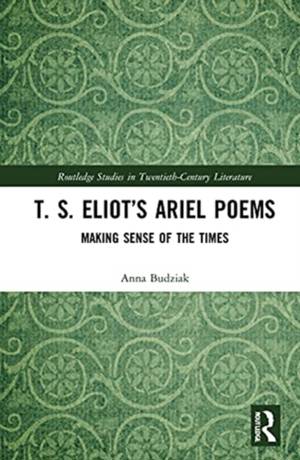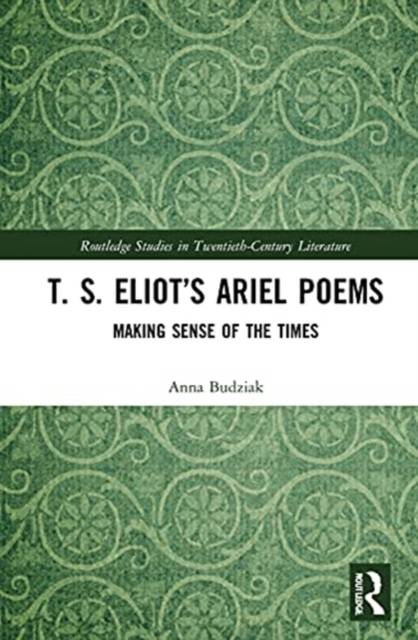
- Afhalen na 1 uur in een winkel met voorraad
- Gratis thuislevering in België
- Ruim aanbod met 7 miljoen producten
- Afhalen na 1 uur in een winkel met voorraad
- Gratis thuislevering in België
- Ruim aanbod met 7 miljoen producten
Omschrijving
T. S. Eliot once stated that the supreme poet "in writing himself, writes his time". In saying that, he honoured Dante and Shakespeare, but this pithy remark fittingly characterises his own work, including The Ariel Poems, with which he promptly and pointedly responded to the problems of his times. Published with unwavering regularity, a poem a year, the Ariels were composed in the period when Eliot was mainly writing prose; and, like his prose, they reverberated with diverse contemporary issues ranging from the revision of the Book of Common Prayer to the translations of Heidegger to the questions of leadership and populism. In order to highlight the poems' historical specificity, this study seeks to outline the constellations of thought connecting Eliot's poetry and prose. In addition, it attempts to expose the Ariels' shared arc of meaning, an unobtrusive incarnational metaphor determining the perspective from which they propose an unorthodox understanding of the epoch-- an underlying pattern of thought bringing them together into a conceptually discrete set. This is the first study that both universalizes and historicises the series, striving to disclose the regular without suppressing the random. Approaching the series as a system of orderly disorder, the notion very much at home with chaos theory, it suggests new intellectual contexts, offering interpretations that are either fresh, or significantly reangled.
Chapter 5 of this book is freely available as a downloadable Open Access PDF at http: //www.taylorfrancis.com under a Creative Commons Attribution-Non Commercial-No Derivatives (CC-BY-NC-ND) 4.0 license.
Specificaties
Betrokkenen
- Auteur(s):
- Uitgeverij:
Inhoud
- Aantal bladzijden:
- 216
- Taal:
- Engels
- Reeks:
Eigenschappen
- Productcode (EAN):
- 9780367645311
- Verschijningsdatum:
- 6/09/2021
- Uitvoering:
- Hardcover
- Formaat:
- Genaaid
- Afmetingen:
- 152 mm x 229 mm
- Gewicht:
- 452 g

Alleen bij Standaard Boekhandel
Beoordelingen
We publiceren alleen reviews die voldoen aan de voorwaarden voor reviews. Bekijk onze voorwaarden voor reviews.












